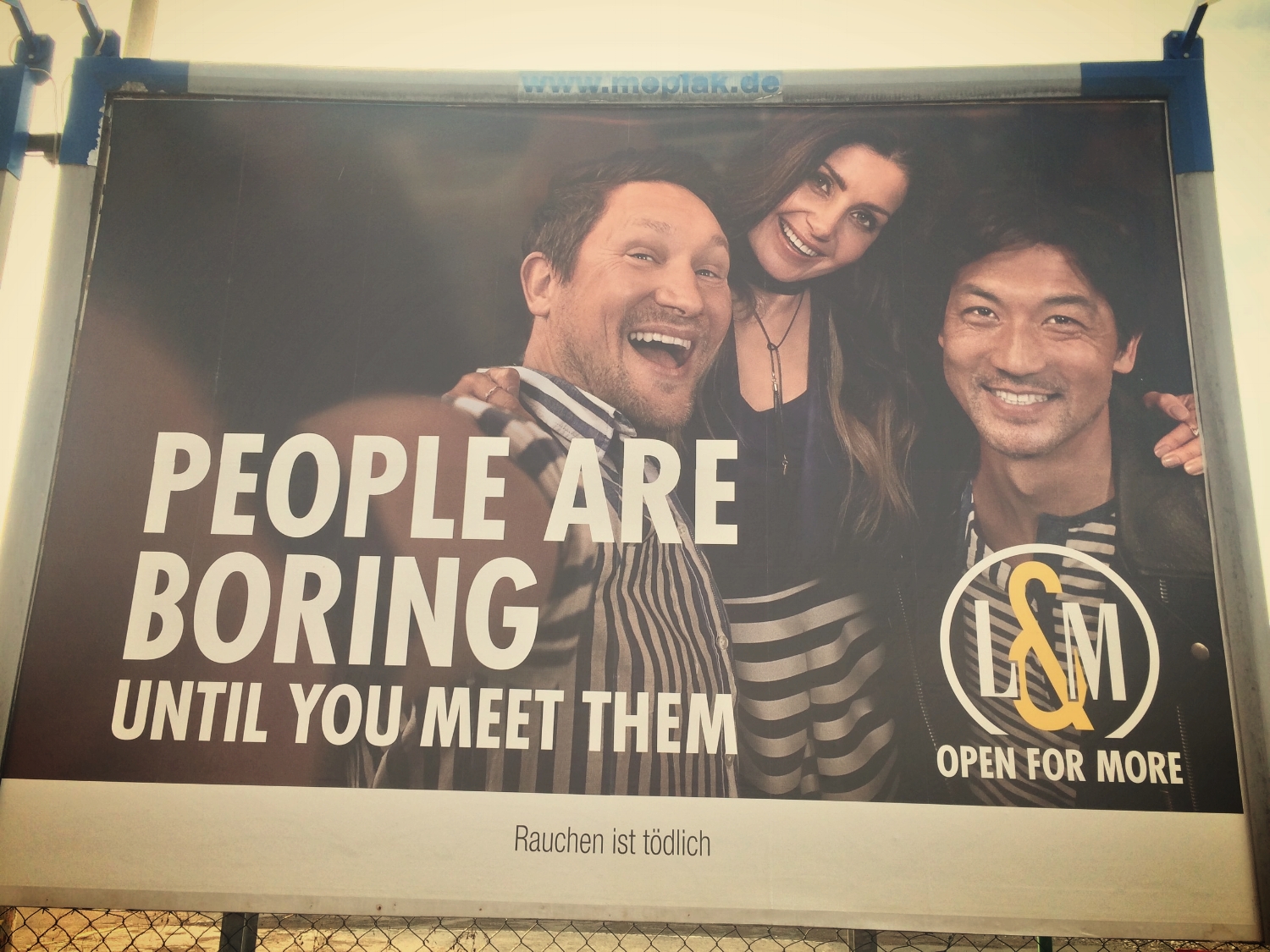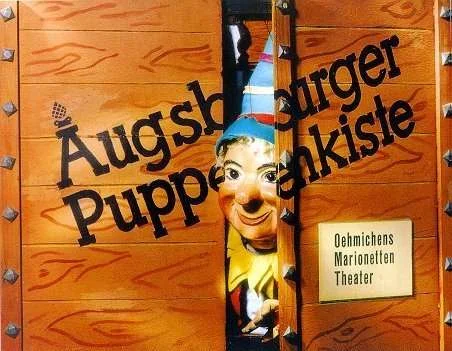Germany and the Love of Cigarettes
Walk around the streets of Germany long enough and you will inevitably come across a cigarette machine. Whether you happen to be in the smallest of villages or the largest of cities, the streets of Germany are littered with them. They serve a practical purpose, in a country where the shops close at 8 or on a Sunday, do not open. This is in sharp contrast to the UK, which has increased restrictions year on year, with most shops now selling cigarettes behind a set of non-transparent sliding doors, turning the process of buying cigarettes into a weird version of Guess Who?:
“do you have this brand?”
“no”
“how about this brand?”
“no”
“This brand?”
“yes, but only in menthol.”
“forget it”
Obviously the reason the UK has clamped down heavily on smokers and smoking is that it’s estimated to cost the NHS between £5-6 billion a year to treat people with smoking related diseases. Taxes on smoking bring in roughly £12 billion a year, however recent studies suggest that smoking could cost tax payers up to £14 billion a year once lost productivity at work or the cost of emergency services attending fires caused by cigarettes are factored in.
In the UK, the NHS has a duty of care for everyone, which includes educating people about their health. It spends large amounts of money every year in promoting healthy living, advertising about the dangers of smoking, drinking or eating poorly. Some might describe these activities as evidence of a “nanny state”, but it is an essential part of what the NHS does.
Germany operates a different healthcare model from the UK, which tries to find a middle ground between public and private healthcare. Although there is an affordable public option available to all, it is common for those who can afford it to pay for private healthcare. Germany has some healthcare adverts (especially regarding STDs), but it is more common to see cigarette adverts than healthcare advice.
Cigarette adverts can still be seen on billboards throughout Germany, with little restrictions. In fact, Germany is the only EU member state to still allow cigarette advertising outdoors and in cinemas. Recent attempts to ban the practice appear to have come to nothing, despite concerted efforts from both major parties in the Bundestag. The German Advertising Association argue that punitive measures against cigarette billboards would go against EU free market rules. The organisation’s managing director has declared in the past that a comprehensive ban would “Suspend the basic rules of free markets” and that “A complete cap on advertising to adult customers puts the sector outside the system of the market economy,”.
The German Advertising Association aside, it is in reality the power of the cigarette lobby in Germany that appears to be preventing any ban coming before German politicians. Accusations of cigarette companies sponsoring political events and even of drafting legislation have been around for many years. Attempts by politicians to put a ban up for a vote have been criticised by the German Cigarette Association, who claimed that it would burden the German economy with far reaching rules that had no clear end point and could eventually be used to prohibit alcohol or high sugar products.
It would, perhaps be easier to accept the arguments of the German Cigarette Association if it were not for the attempts of cigarette companies to take advantage of the freedom that comes from unrestricted outdoor advertising.
When I first arrived in Germany in 2011, every billboard, bus shelter or Litfaßsäule seemed to have posters displaying only one word “Maybe”. These adverts were clearly for Marlboro, evidenced by the health warnings and small logo featured on the posters. Aside from that, there was nothing else to explain what “Maybe” could be referencing. Only a few weeks after these posters appeared, they were replaced with an explanation. “Don’t be a maybe” was the new declaration, with different messages stating “Maybe never fell in love” or “Maybe never wrote a song” next to inspirational photographs of young men and women. One even suggested that feminism was part of the Marlboro message with “Maybe will never be her own boss”.
By 2013, Germany banned the “Maybe” campaign for its attempts to promote smoking to a younger generation. A report from seven anti-tobacco organisations stated that the campaign "exploits adolescents' search for identity by suggesting that – in the face of uncertainty – they should be a Marlboro smoker" and furthermore:
“PMI (Philip Morris International, owners of Marlboro) claims that 'Be Marlboro' only targets legal-age smokers, campaign advertisements from around the world clearly focus on youth-oriented images and themes that appeal to teenagers and feature young, attractive models partying, falling in love, adventure travelling and generally being 'cool.”
By the time Germany had banned the campaign it had been running for almost two years.
The success of the “Maybe” campaign has in turn sparked imitators. Walking through the streets of Germany today, people are bombarded by images of bearded hipsters, punks or wistful looking twenty-somethings, accompanied by inane tag lines that appear to have come from a marketing intern looking up ‘inspirational quotes’ on Instagram. One suggests “People are boring. Until you meet them” which is exactly the dubious, pseudo-philosophical bullshit you expect to hear from a first-year undergrad student who has only recently realised the mind-bending powers of cannabis. I know, I used to be one. No one needs to be reminded of what a pillock they were in their twenties during the 7am commute to work.
The advertising also serves to empower smokers to feel like their habit is actually quite normal, if not cool. This is in stark contrast from the UK or the US, were someone casually lighting up in an outdoor seating area would be met with howls of complaint. In Germany, these howls fall on deaf or wilfully deaf ears. This can be quite shocking for those unfamiliar with German smoking culture.
Germany may have banned advertising cigarettes on the internet and in magazines, but it was done so reluctantly and with as much foot dragging as possible. It will be a long time, if at all, before Germany adopts plain packaging as in the UK. Frankly, this cannot happen soon enough. Until then, non-smokers will have to continue being exposed to second-hand smoke, with very little they can do to prevent it.











